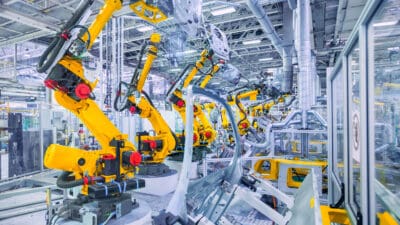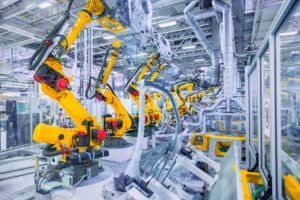
“With change happening both on the product side, through the electric motor, and on the assembly side, through new production methods, for many companies, complexity is like a brewing, unpredictable tornado that will take everything that once was with respect to the process and the product and turn it on its head,” according to Stephan Panian, automotive expert with Staufen AG. “Furthermore, electric and combustion motors as well as assembly cells and assembly line production will be running alongside one another for at least another 15 to 20 years. Besides the OEMs, the suppliers in particular will have to struggle with the traditional drive system technologies.” Until they are proven suitable for large-scale production, digitally networked assembly cells will initially be tested in the manufacturing of electric vehicles or other niche-market products. The first step when testing this production method will be to reach a degree of efficiency such as that obtained through decades of optimizing assembly line production methods. The next objective, however, has already been clearly stated: Audi is expecting to increase its efficiency by 20 percent within ten years by means of this new production method. “To meet these expectations, those suppliers affected have to become considerably more flexible and versatile,” industry expert Panian observed. “At present, only a very few have the degree of agility needed to satisfy volume, model mix and customization requirements.” But what can suppliers do to satisfy the OEM’s new requirements? According to Staufen consultant Panian, “Flexibility cannot lead to capital losses. On the contrary: The more flexible I have to be as a supplier – both with respect to my own production and my logistics when it comes to OEM – the more I have to be in control of my processes, so that if any issues arise, they are immediately transparent.” Robust and disturbance-free processes are the foundation for short cycle times and therefore a prerequisite for being able to react with flexibility. Companies achieve this by focussing on what is important, namely, the actual value creation processes. Optimizing these processes leads to less waste and substantially shorter cycle times. Automotive expert Panian is convinced that, “If the suppliers can then thoroughly manage their interfaces and have transparent processes that allow them to systematically solve problems whenever deviations arise, they will become winners on the agility playing field.” BestPractice Day 2017: Europe’s leading Lean Management Congress The key focus of this year’s BestPractice Day, which will be taking place in Darmstadt from July 4 to 5, 2017, is change and how to successfully face change. Experience presentations by top executives who are actively and deliberately shaping the future of their businesses. With more than 350 participants annually, BestPractice Day has earned the distinction of being the place for decision-makers in the fields of industry and science to meet. More Information about the BestPractice Day 2017: www.best-practice-day.com


